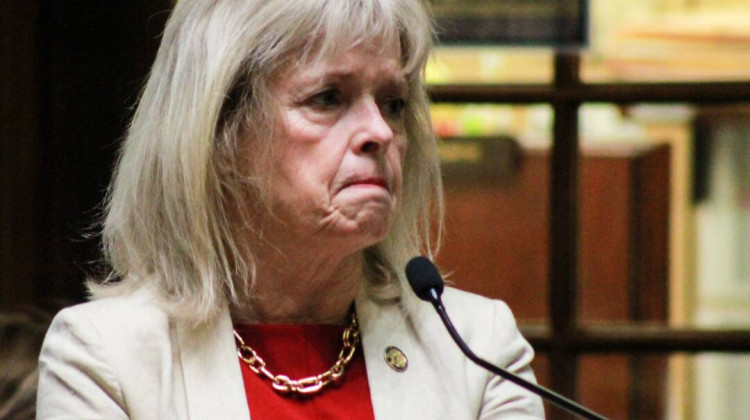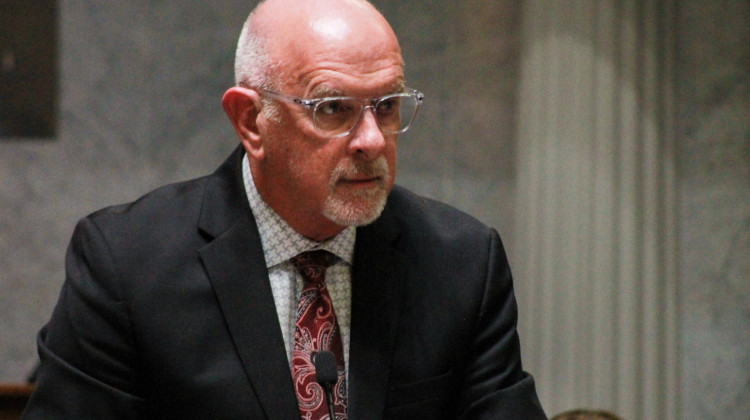
John Rust spoke with people outside the Indiana Supreme Court chambers following Monday's hearing on his ballot access lawsuit.
Brandon Smith/IPB NewsWhether southern Indiana farmer John Rust will appear on the U.S. Senate Republican primary ballot this spring is now in the hands of the Indiana Supreme Court.
The court heard arguments Monday on Rust’s lawsuit challenging the state’s ballot access law.
There are two ways an Indiana candidate can run in a Republican or Democratic primary. They must have voted in that party’s primary in the last two primary elections in which they cast a ballot; or they have to get the permission of the county party leader where they live.
John Rust doesn’t meet those requirements. He voted in the 2016 GOP primary, but cast Democratic ballots before that. And his local party leader refuses to allow him access.
An attorney for the state argued the ballot access law makes things clearer for voters, by keeping ballots uncluttered and showing affiliation with a political party. Supreme Court Justice Christopher Goff sounded skeptical.
“I’m really having a difficult time understanding how voter confusion is alleviated by precluding a choice between two candidates,” Goff said.
Join the conversation and sign up for the Indiana Two-Way. Text "Indiana" to 765-275-1120. Your comments and questions in response to our weekly text help us find the answers you need on statewide issues.
But Justice Mark Massa suggested political parties should get to choose who runs in their primaries.
“I wanted to associate with the most popular girl in high school. But she had a say in it,” Massa said. “Doesn’t the party here have some say in who associates with it?”
The court did not give a timetable for its ruling — but the deadline to finalize the ballot is within the next few weeks.
Brandon is our Statehouse bureau chief. Contact him at bsmith@ipbs.org or follow him on Twitter at @brandonjsmith5.
 DONATE
DONATE






 Support WFYI. We can't do it without you.
Support WFYI. We can't do it without you.